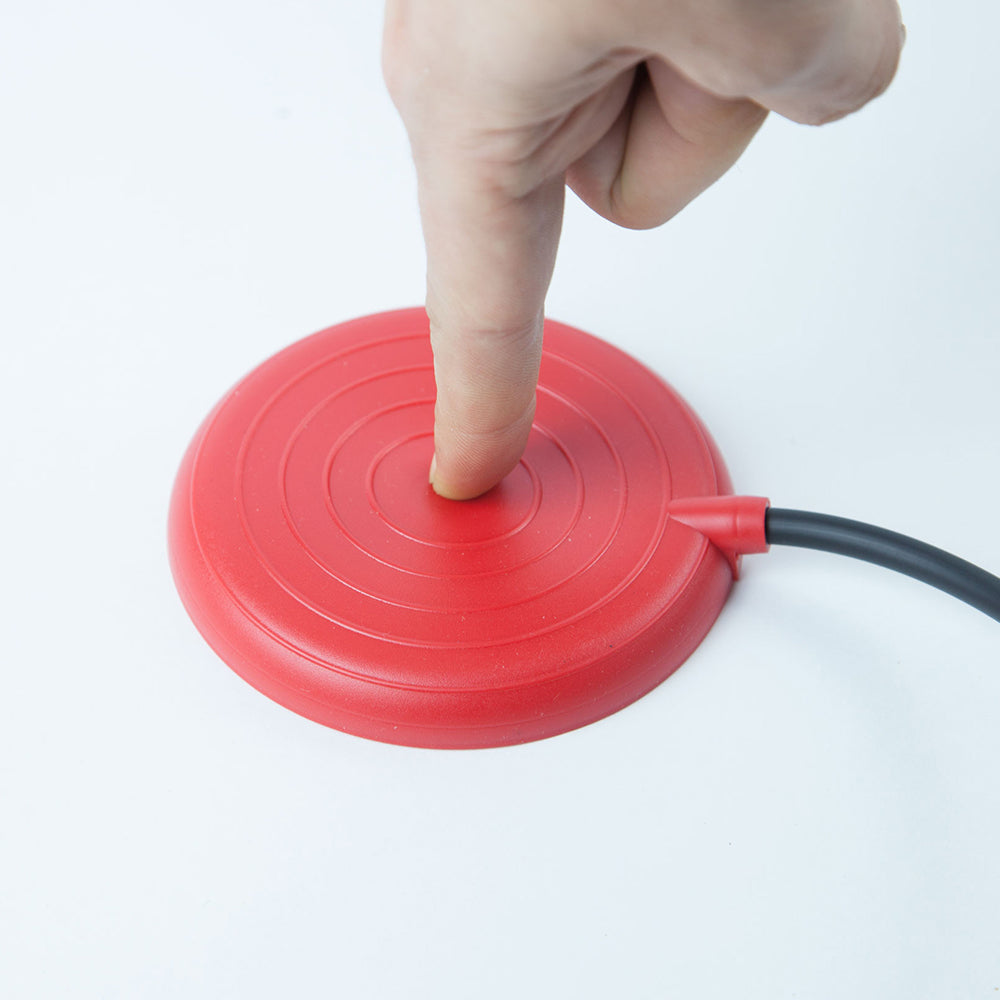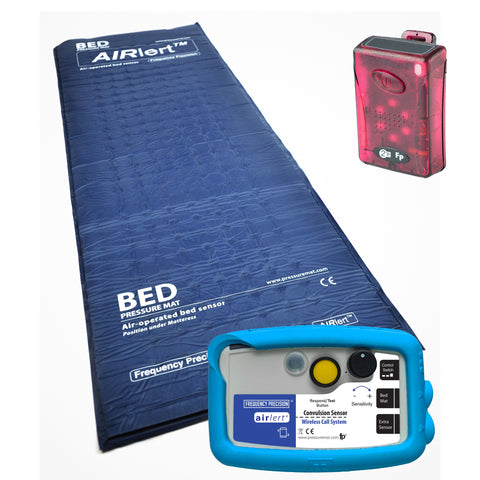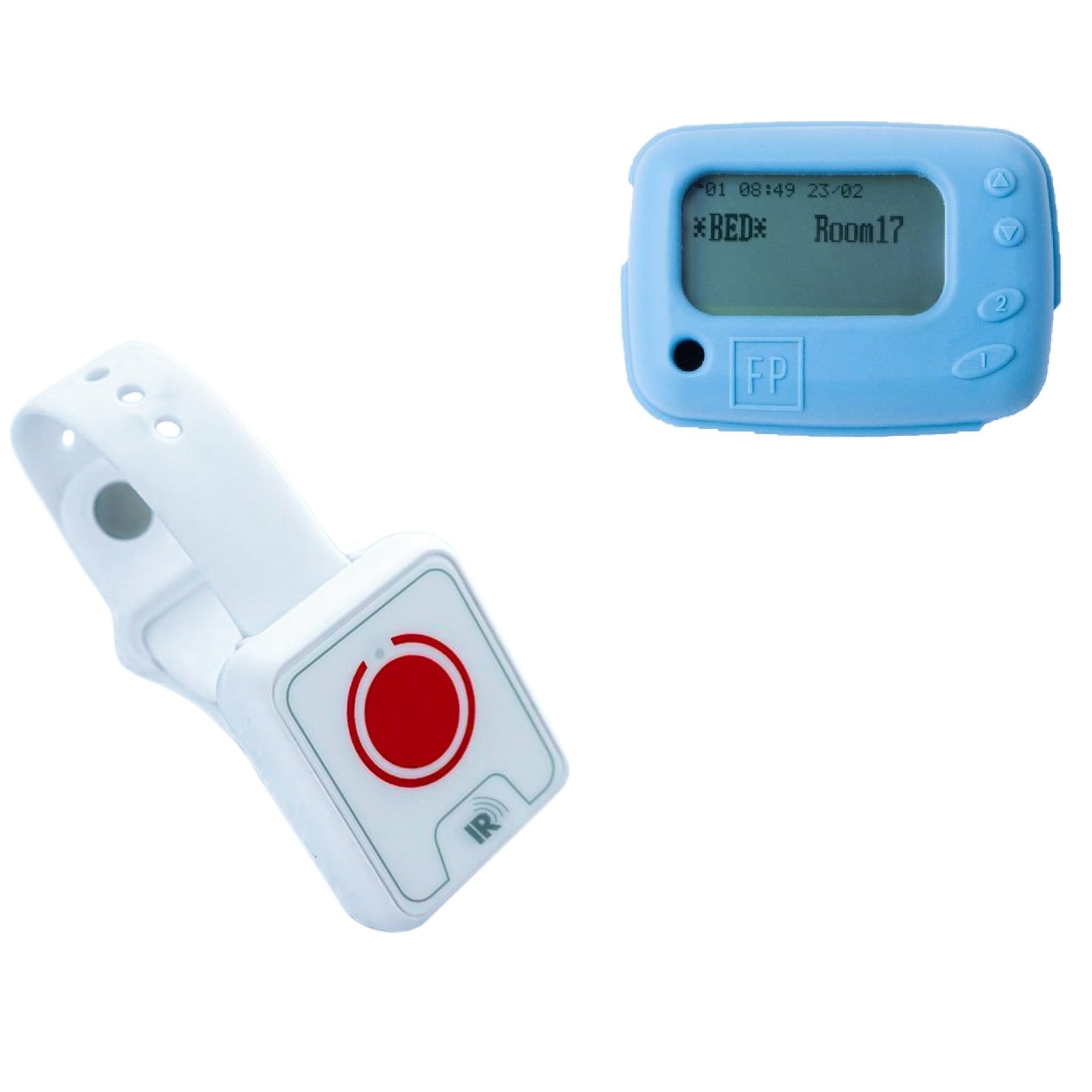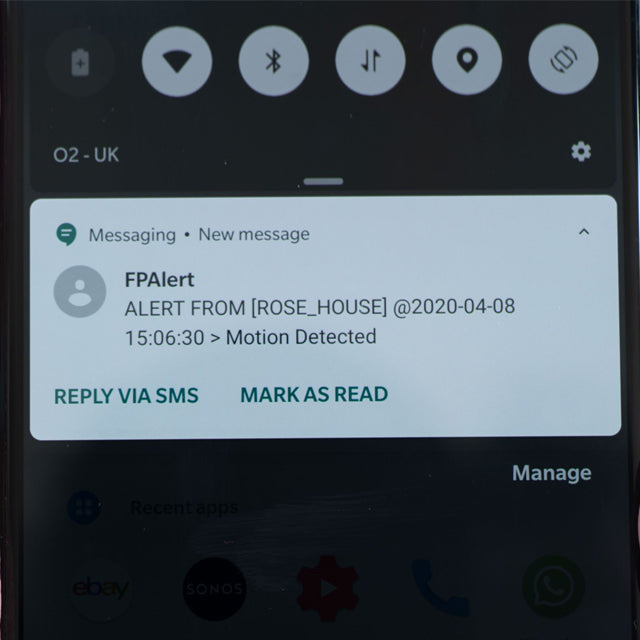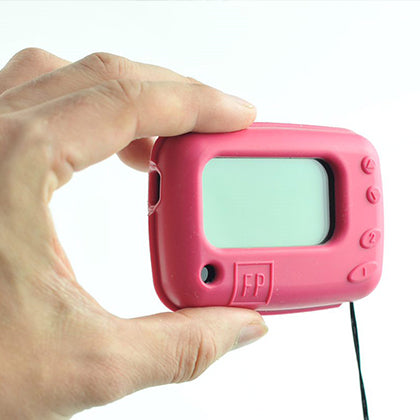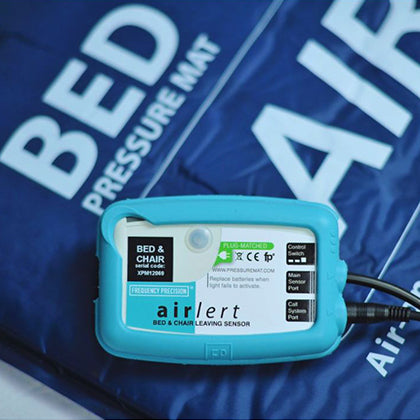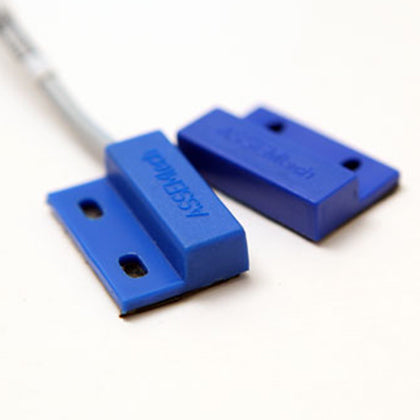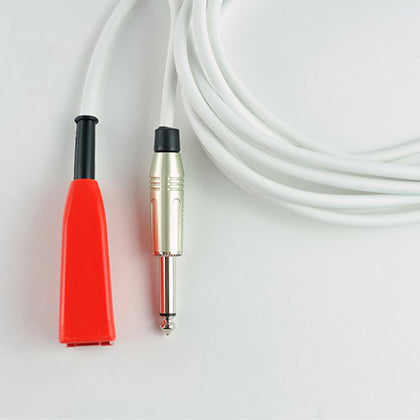Emergency alert devices for elderly individuals, like those from Frequency Precision, ensure quick help in emergencies such as falls or health issues. These devices often include features like health monitoring to track vital signs and ensure overall well-being. This article covers five essential devices from Frequency Precision that offer safety and peace of mind for seniors and their families.
Key Takeaways
-
Emergency alert devices from Frequency Precision, such as personal alarms, fall detection devices, GPS tracking, and smart home sensors, enhance the safety and independence of elderly individuals, providing immediate access to emergency response in emergencies.
-
Selecting the right emergency alert device involves considering features, comfort, compatibility, and user needs, ensuring the system effectively supports the elderly person's safety. Additionally, if the alert is activated accidentally, users can inform the monitoring staff that it was a false alarm, ensuring no unnecessary assistance is dispatched.
-
Positive user experiences and satisfaction with Frequency Precision's emergency alert devices underscore their importance in promoting peace of mind for both elderly users and their families.
What are Emergency Alert Devices?
Emergency alert devices from Frequency Precision, also known as personal alarms, are designed to provide quick and easy access to help in emergency situations. These devices are typically worn on the body as a pendant or wristband and can be activated by pressing a button or, in some cases, automatically detecting a fall.
Definition and Purpose of Emergency Alert Devices
Frequency Precision's emergency alert devices are electronic devices that enable users to quickly call for help in emergency situations, such as falls, medical emergencies, or other life-threatening events. The primary purpose of these devices is to provide users with a sense of security and peace of mind, knowing that help is just a button press away. Whether it's a pendant alarm or a wristband, these devices ensure that assistance is always within reach, offering a reliable safety net for elderly individuals.
Importance of Emergency Alert Devices for the Elderly
Frequency Precision's emergency alert devices are particularly important for the elderly, as they are more prone to falls and other medical emergencies. According to the NHS, falls are a common risk among the elderly, with one in three adults over 65 and 50% of people over 80 experiencing a fall each year. Emergency alert devices from Frequency Precision can provide elderly individuals with the confidence to live independently, knowing that help is available at all times. These devices not only enhance safety but also promote a sense of autonomy and peace of mind for both the users and their families.
Essential Emergency Alert Devices for Elderly Safety

Emergency alert devices from Frequency Precision include:
-
Personal alarms empower elderly individuals to summon help at the push of a button, providing immediate access to emergency services.
-
GPS tracking systems that ensure real-time location monitoring for peace of mind.
-
Fall detectors that automatically alert caregivers in case of a fall, ensuring timely assistance.
Remote monitoring capabilities from Frequency Precision allow caregivers to keep an eye on the elderly individual's status from a distance, ensuring timely intervention when needed.
Each of these devices from Frequency Precision is designed to ensure the safety and well-being of elderly users.
Personal alarms from Frequency Precision instil confidence and peace of mind in elderly users, ensuring they can call for help whenever necessary. Available as wristbands or pendants, these devices are easy to wear and always accessible. Frequency Precision offers a personal alarm service with digital personal alarm options tailored for seniors, providing immediate assistance in emergencies.
Emergency alert devices from Frequency Precision are crucial for providing a safety net for the elderly and reducing the stress and worry of their family members. Reliable means to summon help in emergencies, such as alarm equipment and emergency alarm systems, offer families peace of mind and foster a sense of security.
Here are five essential alert devices for elderly safety, as outlined by Frequency Precision, that provide peace of mind and quick assistance in emergencies:

Personal alarms and emergency medical alert devices have transformed elder care by allowing elderly individuals to seek assistance during emergencies like falls or sudden illness, providing a crucial lifeline in critical moments.
Monitoring systems detect various issues, including movement, temperature changes, and smoke, alerting family members or a dedicated service provider. This proactive approach ensures help is always available, even if the elderly person cannot call for it themselves.
Key safes provide a secure way for emergency responders to access a home when the occupant cannot open the door, ensuring swift assistance. GPS tracking alarms are invaluable for monitoring an elderly individual's location, offering peace of mind to families, especially for those prone to wandering.
Fall detectors, whether part of personal alarms or separate devices, automatically alert caregivers if a fall alarm occurs, ensuring assistance even if the user cannot press a button. Personal alarms, monitoring systems, key safes, GPS tracking devices, and fall detectors together create a comprehensive safety net for elderly individuals.
1. Medical Alert Systems
Medical alert systems, often designed as necklaces or wristbands, allow seniors to call for help instantly with the press of an emergency button. These systems feature a button that, when pressed, connects directly to emergency services or caregivers, ensuring immediate assistance during a medical emergency. Their simplicity and reliability make them a popular choice among elderly users and their families.
Medical alert systems offer numerous benefits. In emergencies, the ability to summon help with a single button press can be life-saving, providing a direct line to emergency services and ensuring quick, efficient assistance. This immediate response is crucial for addressing medical emergencies promptly, reducing the risk of complications. In case of a false alarm, users can easily inform the monitoring centre, ensuring that no unnecessary emergency response is triggered.
Wearable medical alert devices, like pendant alarms, are designed for comfort and ease of use. Lightweight and discreet, they do not burden users, encouraging consistent use and ensuring help is always within reach. This peace of mind allows elderly individuals to live more confidently and independently.
Users of medical alert systems often report high satisfaction, citing their reliability and effectiveness in providing timely medical assistance. The combination of ease of use, immediate connection to emergency services, and peace of mind makes medical alert systems a vital tool for elderly safety.
2. Personal Emergency Response Systems (PERS)
Personal Emergency Response Systems (PERS) provide a two-way communication channel in emergencies, allowing seniors to make an emergency call anytime, anywhere. Essential for active individuals, PERS ensures that help is always just a button press away, whether at home or out and about.
A key feature of PERS is its two-way communication capability, allowing users to not only send alerts but also communicate directly with emergency responders or caregivers. This is especially useful when the alarm user needs to convey specific information about their condition or location, ensuring prompt and appropriate assistance.
PERS devices come in various forms, including home-based systems and mobile devices that can be carried or worn. This flexibility suits a wide range of lifestyles, from those who prefer to stay at home to those who are more active. Their adaptability ensures that seniors can always access help when needed.
The reliable communication and ease of use of PERS make it an invaluable tool for elderly safety. These systems provide immediate assistance in emergencies and offer peace of mind to both users and their families, knowing help is always within reach.
3. Fall Detection Devices

Fall detection devices are crucial in modern medical alert systems, using sensors for automatic fall detection and alerting emergency contacts or a monitoring service without the need for the user to press a button. This is particularly beneficial if the user is unconscious or unable to move.
These devices are often integrated into medical alert systems, ensuring elderly individuals receive timely assistance. They distinguish between normal movements and falls, minimising false alarms and ensuring genuine emergencies are addressed promptly.
Fall detection devices can be part of personal alarm systems or standalone devices, offering flexibility to suit different needs and lifestyles. Whether integrated into a comprehensive system or used separately, digital fall alarm detectors are vital for elderly safety.
The reliability of fall detection devices makes them popular among elderly users and their families, providing peace of mind by ensuring help is automatically summoned in the event of a fall, reducing the risk of prolonged injury.
4. GPS Tracking Devices
GPS tracking devices are essential for location tracking of elderly individuals, especially those with cognitive impairments like dementia. These wearable devices, often in the form of watches or pendants, provide real-time location data, allowing caregivers to quickly locate loved ones if they wander off.
These devices offer significant peace of mind to families, knowing they can quickly find and assist their loved ones in emergencies. They are particularly useful in preventing dangerous situations where elderly individuals may become lost or disoriented.
Wearable GPS devices are designed for comfort and ease of use, allowing elderly individuals to wear them without discomfort. Features like geofencing alert caregivers if the user leaves a predefined safe area, ensuring quick response and enhanced security.
Integrating GPS tracking into personal alarm systems adds an extra layer of safety, making these devices indispensable for elderly care. Real-time location monitoring ensures help is always close at hand, providing users and their families with security and peace of mind.
5. Lifeline Alarms
Lifeline alarms are a type of emergency alert device that connects users to a 24/7 monitoring service. These alarms are typically provided by local authorities and councils and are designed to offer flexible and affordable peace of mind for elderly and vulnerable individuals. When activated, a Lifeline alarm connects the user to a dedicated monitoring service, ensuring that help is available at any time of the day or night. This continuous support is crucial for elderly alarm users, providing them with the reassurance that assistance is always just a call away.
These alert devices are vital for enhancing the safety and independence of elderly individuals, ensuring they have access to help when needed.
Emergency alert devices significantly enhance the safety and independence of elderly individuals. They provide a crucial safety net, ensuring help is always accessible, whether at home or on the go. The ability to quickly summon assistance in emergencies reduces risks and promotes security.
Personal alarms, fall detectors, and GPS tracking devices support independent living for elderly individuals by providing immediate access to help, allowing seniors to maintain their independence and confidently engage in daily activities. The peace of mind from knowing help is always available fosters autonomy and reduces the need for constant supervision.
For families, these alert devices reassure that their loved ones are safe and can access help when needed.
Key Features to Consider
When choosing an emergency alert device, there are several key features to consider. These include:
-
Integration with Emergency Services: Look for devices that can connect directly to emergency services, such as police, fire, and ambulance. This direct connection ensures that help is dispatched quickly in a medical emergency, providing timely assistance when it is most needed.
-
GPS Tracking: Consider devices with GPS tracking capabilities, which can help emergency responders locate the user in emergency situations. A GPS tracking system is particularly useful for elderly individuals who may wander or become disoriented, ensuring they can be found quickly and safely.
-
Fall Detection: Some devices come with automatic fall detection, which can detect falls and send alerts to emergency services or nominated contacts. This feature is essential for ensuring that help is provided even if the user is unable to press the button themselves, minimising the risk of prolonged injury.
-
Monitoring Service: Consider devices that offer access to24/7 monitoring services, which can provide users with peace of mind and quick access to help in emergency situations. A reliable monitoring service ensures that there is always someone available to respond to alerts, providing continuous support and reassurance.
By considering these key features, you can select an emergency alert device that best meets the needs of the elderly individual, ensuring their safety and providing peace of mind for both the user and their family.
Benefits of Using Emergency Alert Devices for the Elderly

Emergency alert devices significantly enhance the safety and independence of elderly individuals by providing reliable emergency assistance at the touch of a button. These devices ensure help is always accessible, particularly in emergencies where quick intervention is crucial.
A primary benefit of these devices is the peace of mind they offer to users and their families, alleviating stress and worry by knowing help is easily accessible. Involving family members early in the decision-making process can lead to better choices regarding alert systems.
These devices also promote independence by reducing the need for constant supervision, allowing seniors to engage in daily activities confidently. Basic systems without monthly fees are cost-effective, making them accessible to more users.
Quick response times are another advantage, preventing complications and ensuring prompt medical assistance. These devices ensure elderly individuals are never alone in emergencies, enhancing their well-being.
Peace of Mind for Family Members
Emergency alert devices provide peace of mind for family members, knowing their loved ones can access help if needed. This reassurance reduces stress and allows families to focus on other caregiving aspects. Monthly fees for some services are a worthwhile investment for the security they offer.
Involving family and friends in selecting a device can lead to better outcomes, ensuring the system meets the elderly individual's needs and enhancing peace of mind for everyone involved.
Enhanced Independence
Emergency alert devices enable elderly individuals to remain independent by providing immediate access to assistance, reducing the need for constant supervision. Features like fall detection and GPS tracking minimise risks, allowing seniors to engage in activities freely.
Using personal safety equipment like pendant alarms ensures help is accessible while preserving privacy. These devices are discreet and easy to use, enhancing independence and providing essential protection.
Choosing the Right Emergency Alert Device
Selecting the right device involves evaluating preferences and features that cater to personal needs. Consider ease of use, comfort, and compatibility with the user's lifestyle and home setup. Features like fall detection, GPS tracking, and medication reminders enhance protection.
Consulting with family and healthcare providers ensures the device meets the user's needs. Open communication provides valuable insights, leading to informed decisions that enhance safety and independence.
Positive Experiences
Users often report high satisfaction with emergency alert devices, highlighting their effectiveness in providing peace of mind and safety. Positive experiences demonstrate the value of these devices for elderly safety.
Addressing initial setup concerns through guidance and support increases confidence and satisfaction, ensuring users rely on their devices in emergencies.
To learn more about our range of emergency alert devices and how they can enhance elderly safety and independence, visit our website at Frequency Precision Contact Us. Our team is dedicated to providing the best solutions for your needs.
Summary
In conclusion, emergency alert devices are vital for enhancing the safety and independence of the elderly. From medical alert systems and personal emergency response systems to fall detection and GPS tracking devices, these tools ensure quick access to help, allowing seniors to live securely.
The benefits are numerous: peace of mind for families, increased independence for users, and swift emergency responses. Choosing the right device involves considering ease of use, comfort, and features, ensuring a reliable safety net for loved ones.
Consulting with family and healthcare providers is crucial to meet specific needs. Positive user experiences confirm these devices' effectiveness in providing safety and reassurance.
Ultimately, emergency alert devices support independent living and offer security for both elderly individuals and their families, ensuring help is always accessible.
Frequently Asked Questions
What are the main types of emergency alert devices for the elderly?
Emergency alert devices for the elderly primarily include medical alert systems, personal emergency response systems (PERS), fall detection devices, GPS tracking devices, and smart home safety sensors. These tools enhance safety and provide peace of mind for both the elderly and their caregivers.
How do fall detection devices work?
Fall detection devices utilise sensors to automatically identify a fall event and promptly notify emergency contacts or monitoring services, ensuring timely assistance without requiring user intervention.
Can GPS tracking devices be used for elderly individuals with cognitive impairments?
Yes, GPS tracking devices are effective for monitoring elderly individuals with cognitive impairments, providing reassurance by enabling quick location retrieval if they wander off.
What features should I look for in a personal alarm system?
A reliable personal alarm system should prioritise battery life, fall detection, GPS tracking, and ease of use to ensure effectiveness and comfort. Additional features like medication reminders can enhance its functionality.
How do emergency alert devices enhance the independence of elderly users?
Emergency alert devices significantly enhance the independence of elderly users by offering immediate access to assistance, which allows them to engage in daily activities with confidence while reducing the need for constant caregiver supervision. This fosters a sense of autonomy and security in their daily lives.

